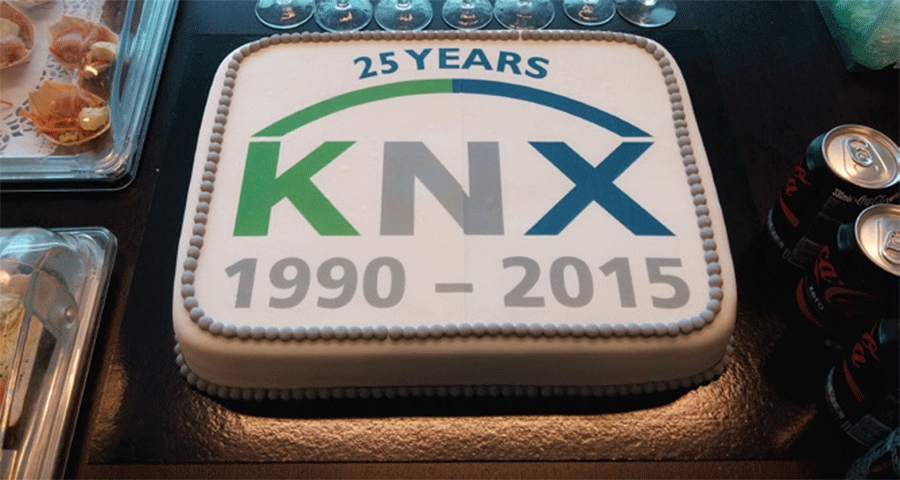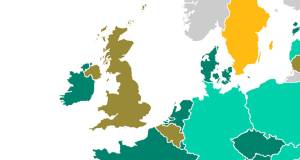
- Product News
- Posted
Building automation protocol KNX celebrates 25 Years
KNX Association has marked the 25th anniversary of KNX, the worldwide standard for home and building control, with the largest ever one-day global event for the building automation sector.
‘KNX Day’, which happened in Brussels at the end of the year, featured a total of 53 KNX co-ordinated events, bringing together thousands of participants across 36 countries to share in KNX training, technology presentations, project showcases, awards, promotions and more.
“What a spectacular way for the global KNX community to unite and celebrate 25 years of KNX,” says Franz-Josef Kammerl, President of KNX Association. “Each participating country has succeeded in focusing the minds of installers, specifiers and end-users on the capabilities, strengths and bright, long-term future of KNX as the worldwide standard for building automation.”
Niall Walsh of KNX Tech in Dublin explains that by integrating the controls of the range of systems at work in any building, you can achieve a much higher level of control over how they work together, and therefore over the amount of energy they use.
Walsh uses the protocol in his own south Dublin passive house. “What happens in my house with my kids, the movement detector for the alarm is connected to the electrical circuits, so if they sense no movement in their bedrooms for 20 minutes, that means the kids are no longer in the room, so everything goes off.”
Other applications are a little more subtle, but equally powerful. He explains that last summer he installed KNX sensors in the HRV ducting. When they sense that the extract air has fallen below 20C, they trigger radiators in the living areas to come on.
“The more you integrate, the more you can save,” says Walsh. “My heat pump hasn’t come on since last February. Last year – before I installed the KNX sensors – the wall-mounted thermostats would have triggered it on unnecessarily. I spent €170 on space and water heating last year. This year, I expect it to be €100.”







